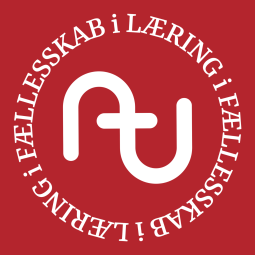Under titlen Akademisk Samarbejde & Formidling går vi i dette tredje semester på tværs af alle forskningstraditionerne og sætter fokus på samarbejdsrelationer og formidling i akademiske sammenhænge. Vi skal i løbet af semesteret arbejde med vores egne personlige styrker og svagheder, vores forskellige roller i teamsamarbejde og træne vores kommunikative evner. Formålet med semesteret overordnet set er, at få et reflekteret og bedre kendskab til os selv og måden, vi interagerer med andre mennesker på.
Kreativitet og innovation
v/SDU
Hvor kreativitet tidligere blev opfattet som en medfødt evne hos en begrænset skare af kunstnere, ser vi i dag kreativitet som en metode, vi alle kan tilegne os (i større eller mindre grad) og anvende i en lang række sammenhænge. I løbet af dette seminar stiller vi skarpt på nyere definitioner af kreativitet, forskellige faser af den kreative proces, kreativitetsfremmende værktøjer og teknikker samt eksempler på anvendt kreativitet i forbindelse med innovative projekter.
Program
16.00 Velkommen
16.50 Pause
17.00 Workshops
- The Social Impact of Climate Fiction v/Adjunkt Bryan Yazell, Institut for Kulturvidenskab
- The Impact of physics designed neural networks for future foods and agriculture v/Adjunkt Mads Toudal Frandsen, Fysik
- Role of Cultural Context in Artificial Intelligence Design and Use v/Postdoc Melissa G. Beach, Institut for virksomhedsledelse
18.00 Spisepause i workshops
18.30 Workshops - fortsat
19.30 Pause
19.40 Fælles afrunding, hvor hver workshop fremlægger arbejdet fra deres workshops
20.00 Tak for i dag
Workshops
Du deltager i én ud af tre workshops.
The Social Impact of Climate Fiction
v/Adjunkt Bryan Yazell, Institut for Kulturvidenskab
Can literature save the world? Scholars and popular authors alike have commented that the failure to systematically confront climate change reflects a larger problem of the imagination. Because climate change unfolds over an extended period of time, it is exceedingly difficult to visualize on a personal or individual level – especially for an audience in more affluent parts of the world. Responding to this problem, authors have recently begun to write forms of fiction that tackle this imaginative problem directly. For example, the genre of climate fiction draws from the speculative elements of science fiction to explore the near-future consequences of climate change. But if these works of fiction wish to motivate readers with respect to climate change, how successful are they? Which literary techniques might they use – such as the use of a particular setting or symbol, for instance – to reach readers? In addition to discussing climate and fiction in general terms, this workshop will also ask that participants are willing to think about how stories about the climate crisis might be told as effectively as possible.
Role of Cultural Context in Artificial Intelligence Design and Use
v/Postdoc Melissa G. Beach, Institut for virksomhedsledelse
Why is cultural context so important for Artificial Intelligence (AI) design and use? This participative workshop explores cultural dimensions, their influence on the ways humans perceive and understand their environment, and how in turn these perceptions have (or should have) relevance in the design and implementation of AI algorithms and systems. Among other things, the session (1) investigates the role of trust and biases in AI design and implementation; (2) delves into ways cultural dimensions shape human ability to ask the “right” questions in the “right” way during the AI design stage; and (3) challenges students to think about whether and how AI may lead humans toward potential solution sets that drive us toward incremental or more radical innovation opportunities.
The Impact of physics designed neural networks for future foods and agriculture
v/Lektor Mads Toudal Frandsen, Adjunkt Wei-Chih Huang & Cand.stud. Mads Juul Ahlebæk, Fysik
We explore the potential of Deep Neural Networks a method of Artificial intelligence, to improve the the efficiency of physical data analysis and thereby to open up new sensor technologies relevant for the green transition within food science and precision agriculture.
i) We explore the mathematics and physics behing Deep Neural Networks.
ii) We discuss the application of Deep Neural Networks to 'inverse problems' in imaging from medical CT scanning to hyperspectral imaging in agriculture and climate monitoring.
iii) We look at a specific and very concrete example of how creatively combining the power of Deep Neural Networks with existing optical technology (Computed Tomography Imaging Spectrometry) we might produce new relevant technology able improve precision agriculture and how we sort and quality check produce (potatoes, carrots...) in the future.
An example of ongoing collaboration between industry in Odense and the University of Southern Denmark.
FORMÅL
Seminar I: Kreativitet & innovation har til formål at vise jer, hvordan en kreativ proces kan se ud, og hvordan I selv kan anvende den som værktøj i andre sammenhænge.
FORBEREDELSE: Se dokumentarfilmen Solutions, hvor en gruppe af førende forskere og iværksættere fra hele verden samles for udvikle kreative og innovative løsninger, der sikrre menneskeheden igennem at skabe en ny og optimistisk vej ind i fremtiden. Du modtager link til filmen ugen inden seminaret.
MEDBRING: Pc. papir og pen
PRAKTIK: Der er spisepause, hvor ATU sørger for forplejning. Medbring selv drikkedunk.
FIND VEJ: Du finder lokale O100 her!
Hvis du er på cykel: Benyt Indgang Gydehutten N. Der er cykelparkering nær indgangen.
Hvis du er i bil: Benyt Indgang Agrene Ø. Benyt P1 eller tilstødende pladser med tilkørsel via Moseskovvej.
Hvis du ankommer med offentlig transport: Busserne stopper her. Benyt Indgang Agrene Ø.
AFVIKLER: Kira - tlf. +45 5383 6945 mail: kira@atusyd.dk, kontaktes på dagen hvis du bliver forsinket eller forhindret på dagen.





 Find us on Facebook
Find us on Facebook
 Join our network
Join our network